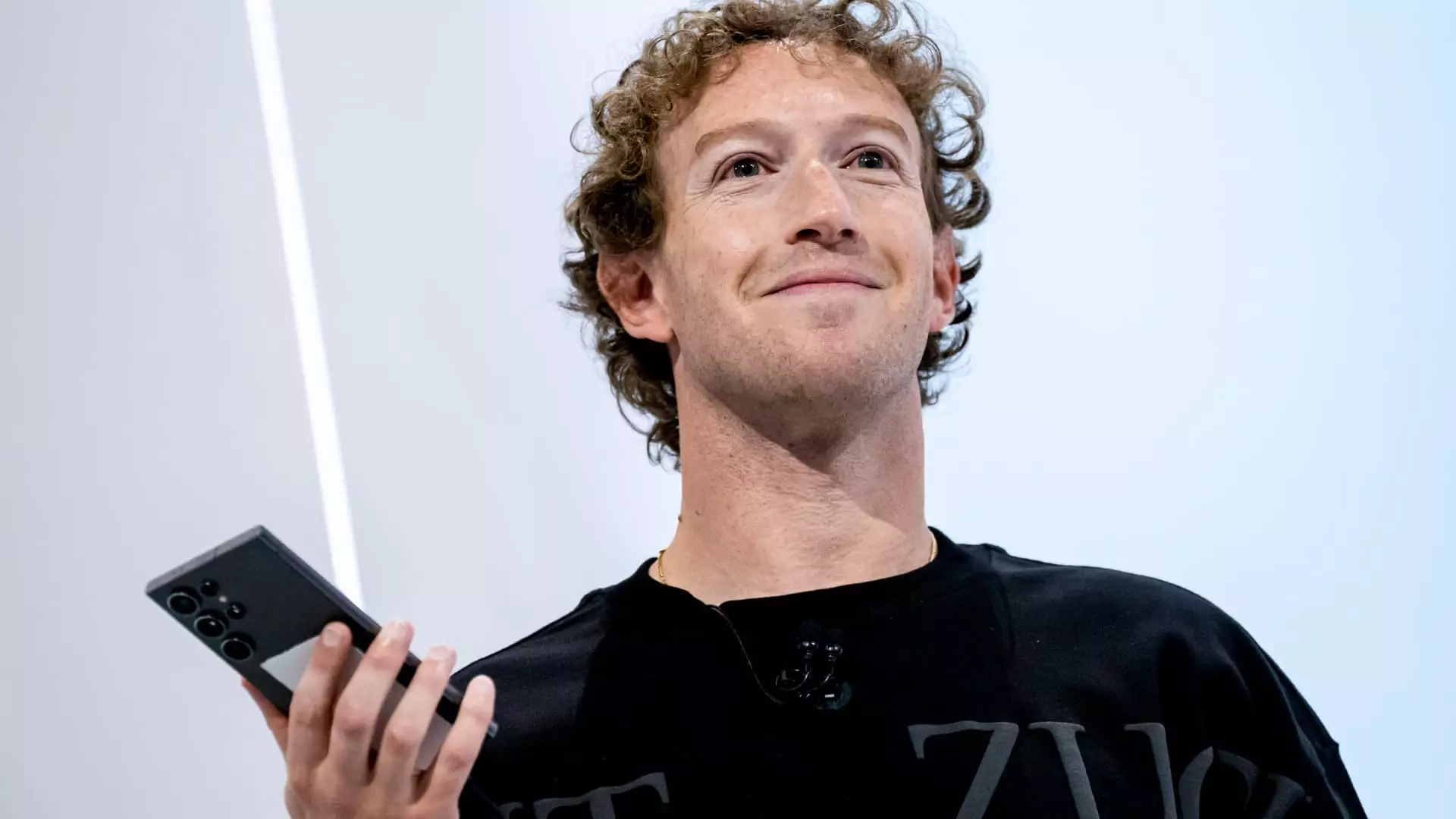In a recent episode of the “Joe Rogan Experience,” Meta’s CEO Mark Zuckerberg did not hold back when discussing the perceived stagnation of innovation at Apple. His comments shed light on the complex dynamics that govern competition in the tech industry and challenge the narrative surrounding Apple as the paragon of technological advancement.
Zuckerberg acknowledged the monumental impact that the iPhone has had on global communication and accessibility. “On the one hand, [the iPhone has] been great, because now pretty much everyone in the world has a phone, and that’s kind of what enables pretty amazing things,” he remarked, emphasizing the foundational role that Apple’s flagship device has played. However, this admiration is quickly overshadowed by his criticism of Apple’s innovation trajectory, suggesting that the company has remained stuck in a time warp since the days of Steve Jobs.
For Zuckerberg, the issue is not merely about Apple’s inability to release groundbreaking products, but rather an overarching stagnation within the company. The sense that Apple has not produced “anything great” in recent times insinuates that their innovations have merely been incremental rather than revolutionary. This stagnation raises questions about how even the most successful companies can fall into the trap of complacency, relying heavily on past achievements.
Zuckerberg turned his focus to the financial approaches of Apple in light of declining iPhone sales, arguing that users are becoming hesitant to upgrade due to the lack of significant advancements in newer models. He articulated that Apple manages to maintain its profitability not through significant innovation but by “squeezing people,” referring to the company’s controversial practice of charging developers a hefty 30% fee on app sales and purchases made through its platform.
By positioning itself as both a hardware producer and a gatekeeper for the app ecosystem, Apple generates revenue streams that can appear exploitative to competitors. Zuckerberg’s critique invites further examination of the ethical dimensions surrounding the behavior of tech giants. Are these practices justifiable as standard business operations, or do they reflect a deeper moral failing in prioritizing profit over user experience?
A significant part of Zuckerberg’s critique hinged on Apple’s emphasis on consumer privacy and security as a shield against criticisms from competitors. He suggested that this veil is used to rationalize various restrictive practices that hinder innovation. According to Zuckerberg, these “random rules” serve only to solidify Apple’s monopolistic grip on the market, effectively stifling open competition and innovation.
Zuckerberg’s assertion that fixing Apple’s protocol could enhance security aligns with ongoing discussions about the balance between user privacy and technological collaboration. If Apple were to adopt a more open platform, allowing diverse products and applications to connect seamlessly, it might benefit not only developers but also consumers seeking greater utility from their devices. Such a shift could redefine the company’s role in the tech ecosystem, moving from a gatekeeper to a facilitator.
In his discursive critique, Zuckerberg took aim at Apple’s Vision Pro headset, suggesting it “definitely did not hit it out of the park” upon its launch. While recognizing any first version’s shortcomings, he still viewed Apple’s latest offering as a major gamble that may have backfired. This statement highlights a central tension in tech—a space where visionary ambitions often collide with commercial realities.
Zuckerberg views Meta’s products, including the Meta Quest virtual headsets, as rival alternatives poised to reshape consumer experiences in ways that Apple’s offerings currently do not. He communicates an eagerness for Meta to carve out a continued presence in the virtual reality landscape, possibly indicating that despite their competition, there exists mutual respect for the challenges inherent to innovating in a rapidly evolving market.
Mark Zuckerberg’s insights into Apple illuminate a critical battle within the tech industry—one that balances legacy, innovation, and ethical business practices. As Apple contemplates its future trajectory, it may need to confront the reality of a rapidly changing marketplace in which consumers demand greater innovation, transparency, and versatility. The rivalry between Meta and Apple thus continues to be not merely a competition over market share, but a reflection on the very future of technology and what it means to innovate responsibly in an era marked by rapid change and intense scrutiny.


Leave a Reply